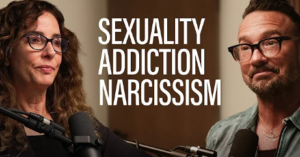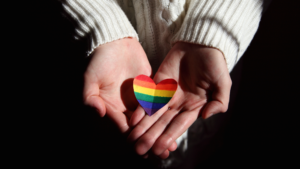Love Addiction FAQ
Love and relationship addiction occurs when a person becomes dependent on the object of their love. While sex addicts are addicted to the “high” of being aroused, love addicts are addicted to the “high” of feeling in love. Like any drug of choice, maintaining this love “high” becomes the focus of the love addict’s life. When love is lost, this can result in feelings of anxiety, depression and suicidal thoughts. Love addicts often put partners’ needs before their own well-being and try to control the partner to get their needs met.
A key way to identify dependent love is how a person feels when the other shows disapproval. In love addiction, when the love object threatens to leave, the love addict shows desperate behaviors. Love addiction may feel self-sacrificing. Dependent love is actually self-serving and a way to avoid deep feelings. For more information, take the Love Addiction Screening Test.
Most people feel great excitement when they fall in love. Excitement is a normal part of the bonding experience. A love addict pushes romantic excitement to euphoric levels. Love addicts spend many hours in compulsive fantasy, imagining ideal love, feeling instant closeness and a complete connection. Euphoria is the “drug of choice” for the love addict. Love addicts believe relationships to be closer and more meaningful than they actually are
There are several reasons why people become love addicted. One theory studies the attachment patterns of early childhood for signs of emotional preoccupation, disorganization or avoidance.
Past trauma can greatly reduce the capacity for healthy relationships. Many love addicts seek out emotionally unavailable partners to re-enact unresolved trauma in a misguided attempt at healing the past. Trauma re-enactment only serves to reinforce a love-addicted pattern. Professional help to resolve trauma is always recommended.
Drama, break-ups, feeling lost. Love addicts may commit to a relationship much sooner and more intensely than the relationship can tolerate. Quick bonding and merging may result in rushed decisions to have sex, move in together, commit to marriage, and co-mingle money. Rushed commitments often lead to problems in the relationship. The love addict does not see that relationship problems are often a result of their own poor boundaries and decisions. Break-ups can be devastating for the love addict. A love addict attaches his or her identity to the partner and relationship. If the partner moves on from the relationship this can feel like the loss of one’s own self. Single love addicts tend to escape into delusive fantasy or emotional intrigue to avoid extreme feelings of loneliness, isolation and unworthiness.
No. Recovery from love addiction creates the possibility for true intimacy in a healthy relationship. Emotional sobriety means developing the skills to be able to positively connect with oneself and one’s partner. To suffer from love addiction typically brings deep feelings of loneliness and isolation, in or out of a relationship. Love addicts experience relationships through obsessive thoughts, anxiety, worry, regret, fear, rage, resentment, jealousy and envy. Loneliness and isolation are a result of obsessive thoughts that by nature are impossible to bring to full awareness. To recover from love addiction means the return of self-regulation, psychological wholeness, and relational potential.
Overcoming love addiction includes stopping obsessive tendencies and the addiction to fantasy as a way to avoid pain and past hurts. A compassionate therapist with expertise in love addiction will help you heal past hurts. Through an extensive sexual/relational history, pains of the past and traumatic relationships are identified and explored. As part of love addiction treatment, boundary plans are constructed to clearly identify the persons and places that lead to and encourage destructive behaviors and relationships. Learning self-care habits, including how to self-soothe and stay in the present along with support groups are all part of the help that is available.



